Tyrone Crystal: The young apprentices keeping ancient craft alive
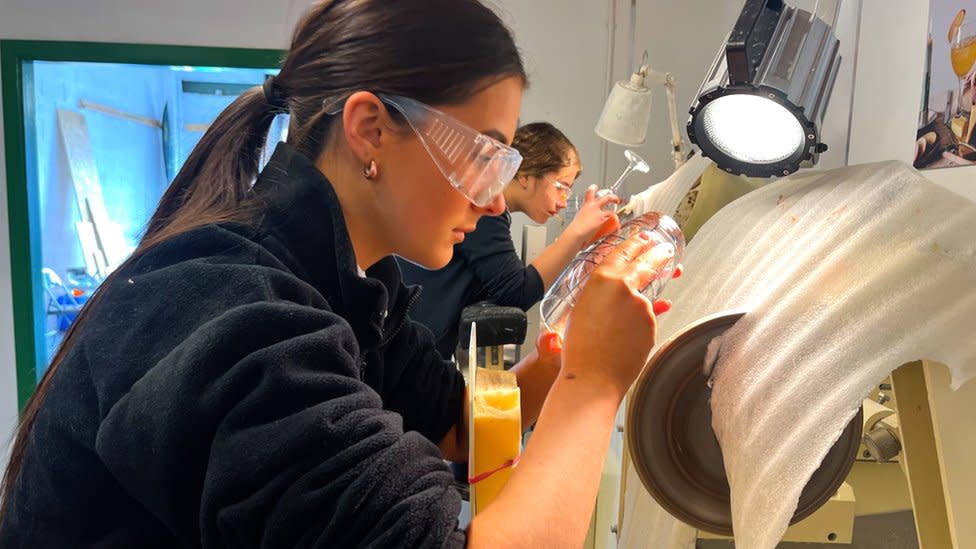
A group of young people from County Tyrone are helping to keep a centuries-old skill alive.
Evidence of glassmaking in Tyrone dates to early medieval Ireland and the first Irish glass cutting factory was founded in the county in 1771.
Now a group of teenage apprentices are learning the craft.
It comes almost 15 years after Northern Ireland's largest glass cutting factory, Tyrone Crystal, closed in 2010.
At the time, many feared the art would be lost in Northern Ireland in the process.
But in 2021 a community-based glassworks was set up in Coalisland.
Initially, Tyrone Crafted Glass consisted of only former master cutters from the old Tyrone Crystal factory.
But the group recently opened a new workshop in Dungannon that has a focus on training the next generation of glass cutters.
'You can be unique'
James Finnegan is 14 years old and lives in Dungannon.
He is one of three current glass cutting apprentices.
"I've cut wine glasses, tumblers, pint glasses, any kind of glass, I've basically cut it," he said.
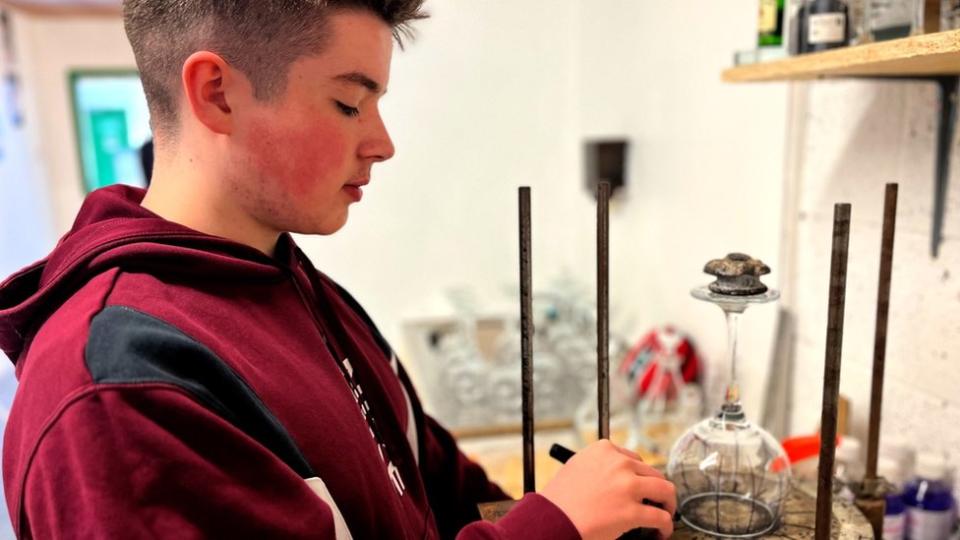
He added: "I really enjoy it because it's something different, you can make your own designs, you can be unique about it.
"I would love to be doing this kind of work the rest of my life and eventually train new apprentices myself."
Apprentice Gracie Carberry, 16, from Coalisland, said: "I was so surprised about how therapeutic glass cutting was, you just get in the zone and you're not aware of people around you.
"I've done a good few of my own designs that are on display in the workshop that I'm really proud of."
Liatriz Morais lives in Dungannon.
The 15 year old became a glass cutting apprentice as a result of doing research for her art coursework.
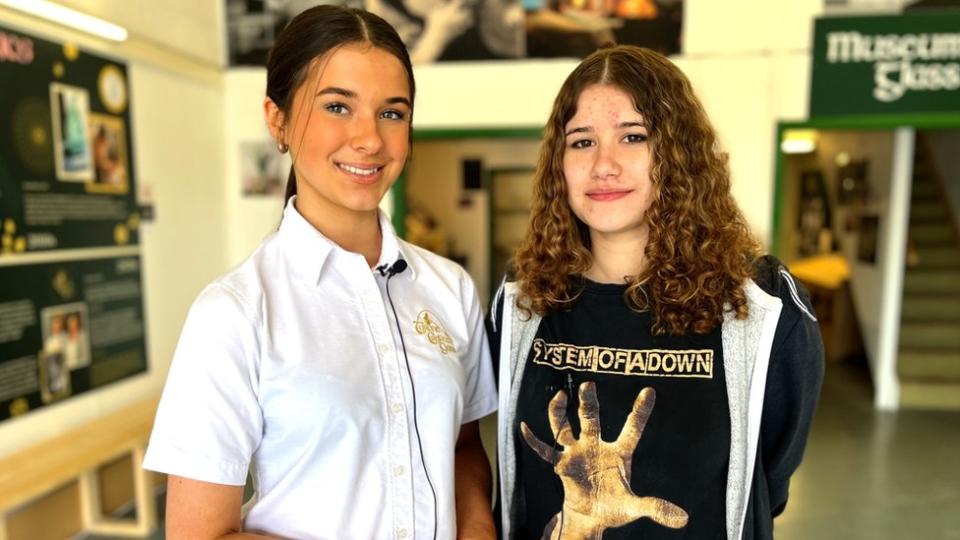
"I first came across glass cutting during a school trip to the workshop and I was hooked," she said.
She added: "I was cutting some designs and one day I saw a glass that had some wheat cuttings on it and got inspired.
"Mine ended up looking like a feather and I just went with it and thought it was pretty cool."
Ancient connection
Archaeological excavations in the mid 1980s discovered that Dunmisk fort in County Tyrone was discovered to have some of the earliest evidence of glass making in early medieval Europe.
Cormac McAleer is from the local historical society where the site was discovered.
He said: "People from this area are proud of this site, it's really significant to have one of the earliest glass making sites on the island, especially when the material would go on to be so important to the area."
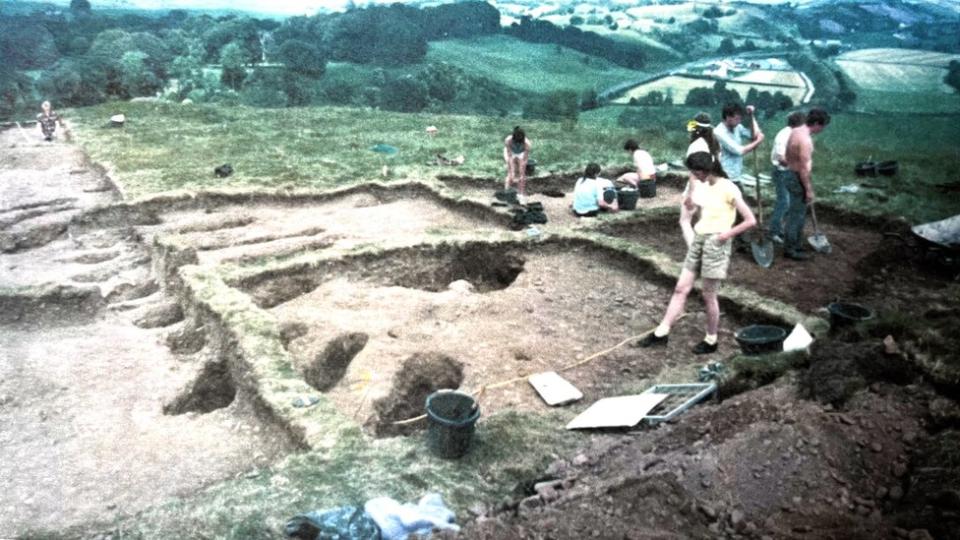
Archaeologists found that Dunmisk had some of the first evidence for glass-making to be produced in Early Christian Ireland.
It proved that both glass-making and glass-working occurred and that not all glass was imported in Ireland during this period.
Dr Patrick Gleeson is a senior lecturer in archaeology at Queen's University Belfast.
He said: "Dunmisk is a very rare site and it's very important, because glass making is very unusual for the period from the 5th to the 11th century AD.

"I'd say there are only a very small handful of sites, elsewhere in western Europe during the medieval period that could parallel it."
One of the first glass and crystal-cutting factories in Ireland can also be tracked back to County Tyrone.
In 1771 a glassworks was opened in the townland of Drumreagh on the outskirts of Coalisland.
The next major development in the local industry came in 1971 when Tyrone Crystal was created.
The company was founded by Catholic priest Fr Austin Eustace, who was a nuclear physicist as well as an expert on glass production.
He started the business as a solution to rising unemployment in the area at the time.
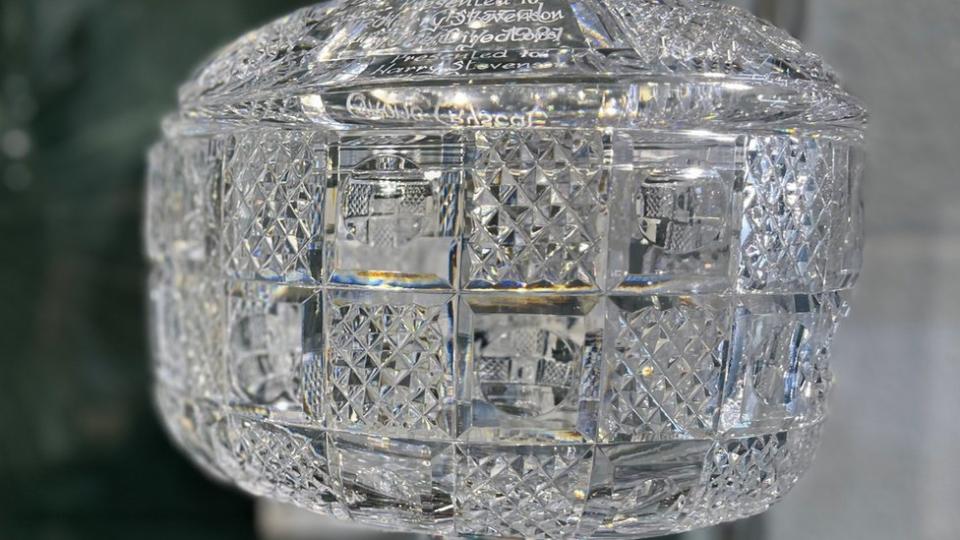
The Dungannon-based business was a success as crystal became popular for wedding and retirement gifts in the 1970s and 1980s.
Its glass and crystal products were shipped across the world.
However, the company experienced a downturn as a demand for its products decreased.
The Tyrone Crystal factory closed in 2010 and this saw the glass-cutting craft virtually disappear from the county.
'It's about the next generation'
Almost 15 years later, ex-workers from Tyrone Crystal have been working on a project introducing glass cutting skills to a whole new generation.
Tyrone Crafted Glass is a community-based glassworks that is based out of Dungannon Enterprise Centre.
It is the brainchild of husband and wife team Gary and Ciara Currie.
Gary said: "The reality is we aren't getting any younger, so it takes the youth to come in and carry on the craft.
"Our three current apprentices will be fully qualified in the next couple of years, so that in 20 or 30 years' time, they can pass their skills onto the next generation."
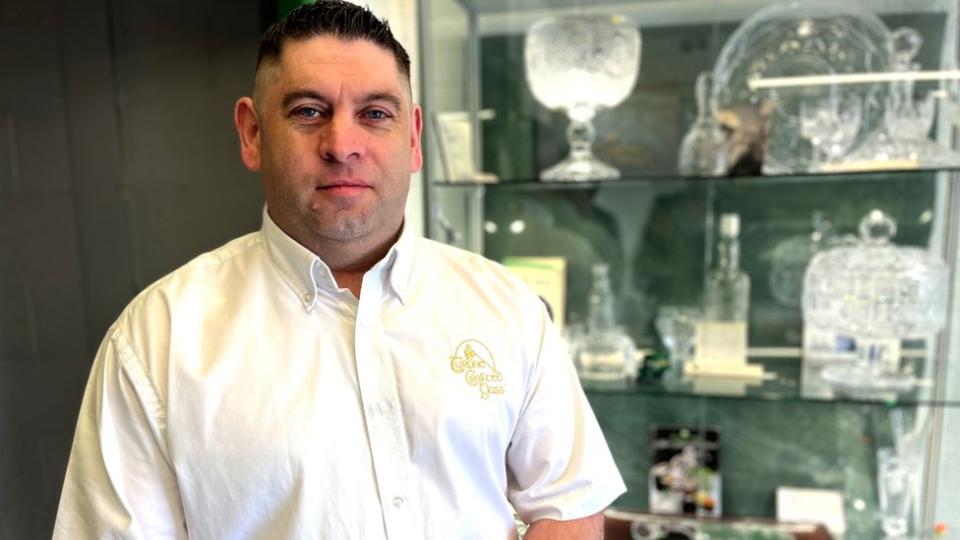
Paul McBride worked in Tyrone Crystal for decades and is training them on the practical skills involved in glass cutting.
He said: "It's about building the young people's confidence, you start off with easy cuts and work from there, but they are really coming on at it.
"It's just great to see young people interested in something I did for most of my life and it means it won't die away."
Tyrone Crafted Glass has received funding from The National Lottery Heritage Fund.

